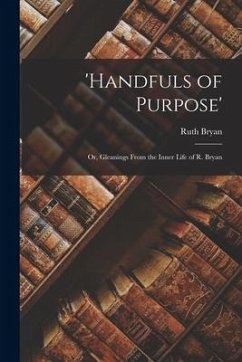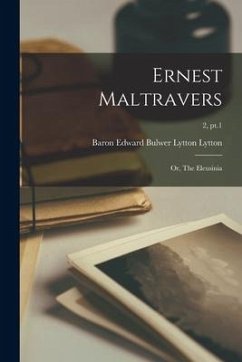
Ernest Linwood; Or, The Inner Life Of The Author

PAYBACK Punkte
13 °P sammeln!
A gripping meditation on identity and the shadows we carry, Ernest Linwood returns to the shelf as a necessary, modern reimagining of a timeless classic. A tale that binds mystery, motive, and moral reform into a single, compulsive experience. This novel fuses the psychological depth of a nineteenth century america romance with the atmosphere of classic american gothic. Its careful weaving of secret identity, family intrigue, and urgent questions of virtue invites both casual readers and seasoned collectors to savour a story that feels intimate, urgent, and hauntingly contemporary. As the narr...
A gripping meditation on identity and the shadows we carry, Ernest Linwood returns to the shelf as a necessary, modern reimagining of a timeless classic. A tale that binds mystery, motive, and moral reform into a single, compulsive experience. This novel fuses the psychological depth of a nineteenth century america romance with the atmosphere of classic american gothic. Its careful weaving of secret identity, family intrigue, and urgent questions of virtue invites both casual readers and seasoned collectors to savour a story that feels intimate, urgent, and hauntingly contemporary. As the narrator peers into the inner life of the author behind the words, the book reveals how personal truth and public reputation can clash, yet endure. Ernest Linwood holds enduring literary and historical significance: a cornerstone of antebellum fiction that resonates with echoes of edgar allan poe gothic sensibilities and the broader antebellum america milieu. This complete edition by Alpha Editions preserves the work's integrity while inviting new generations to rediscover its ethical questions, narrative ingenuity, and atmospheric craft. Selling points: out of print for decades and now republished by Alpha Editions; restored for today's and future generations; more than a reprint - a collector's item and a cultural treasure. A perfect addition for lovers of gothic novels, psychological fiction, and collectible nineteenth century literature alike.













